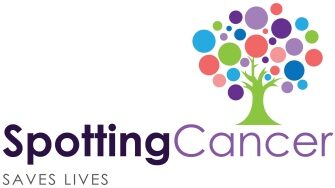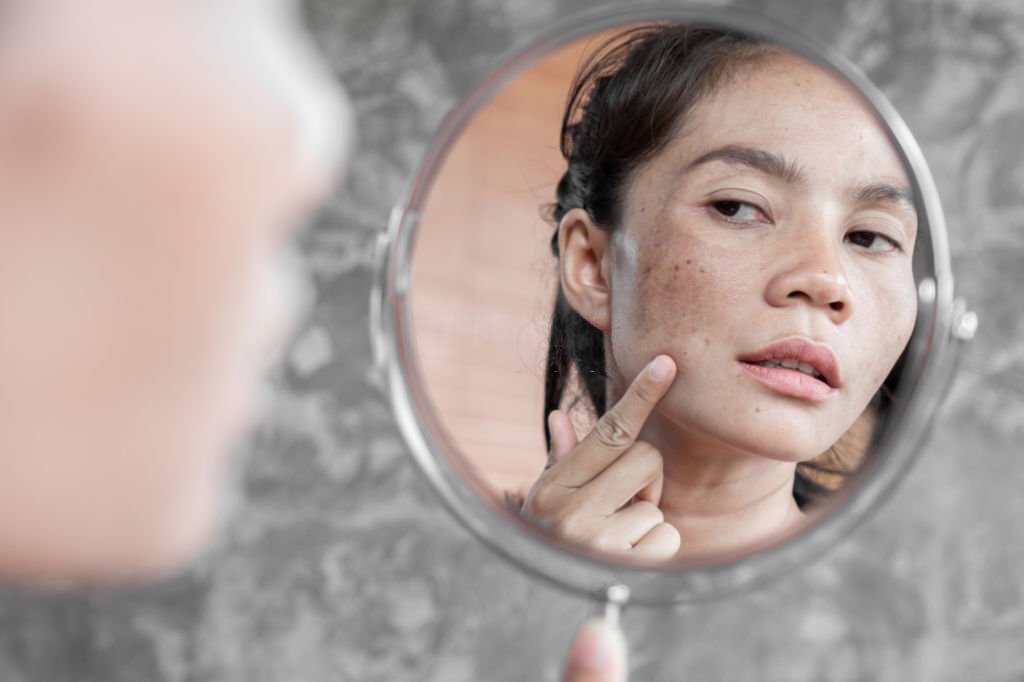How to Create a Habit of Monitoring Your Body
No one knows your body better than you do. You know every inch of skin and the way your body usually feels during each time of day or routine activity. Just as you might notice a sprain or a cold coming on, you can also keep track of your body’s functions as a pre-screening method to detect cancer.
Cancer can happen to anyone, but regular checkups and screenings can catch it at an earlier stage – often even before you start to feel sick. The best way to beat the disease without heading to the doctor every single month – is to make a habit of monitoring your body. This is surprisingly easy to do, and beneficial for more than just screening purposes. Anyone can make a habit of doing a quick self-check during their normal daily, weekly, and monthly routines.
Step Out of the Shower for an All-Points Inspection
Many people have self-care rituals to complete after stepping out of the shower. If you live in a dry climate or have dry skin, you can inspect yourself while applying your body lotion to every area. Simply look a little closer and pay attention to what your hands notice as you moisturize each part of your body.
Download Our Spot and Survive Guides Free Now!
Learn the signs to potentially save yours and your family’s life.
Not a moisturizer? Just give yourself a quick all-points once-over as you dry off. Chest lump-free? Is your skin all the expected colors and textures? Lymph nodes unswollen and fingernails clean and healthy? You’re good to go.
Tell your doctor if:
- You see unusual discoloration or rash
- Unusual bloating, firm abdomen, or tenderness
- Unusual blemishes that have recently appeared
- Feel lumps in your chest (Men and Women!)
Check Your Nails When You Clip or Polish
Everyone must conduct nail care. Whether you get a manicure every week or just clip them when they get long, this is the perfect time to take note of your fingertips, nails, and nailbeds. Healthy nails are a pale cream plus the color of your skin underneath. Healthy nail beds are smooth (or perhaps a little dry) and the same color as the surrounding skin.
Tell your doctor if:
- Nails become lined, rippled, or of unusual thickness
- Fingertips swell or become discolored
- Nail beds are discolored or inflamed and tender
Check Out Your Tongue & Throat When You Brush Your Teeth
You brush your teeth every day in the mirror, so why not give yourself an oral health check. Check out the color and health of your tongue before and after brushing. Look down your throat, say hello to your uvula, and tap your soft palate. Does everything seem normal? Most of the time, it will. Brushing your teeth is one of the most routine actions in modern life. But tell your doctor if something changes that isn’t normal.
Tell your doctor if:
- Dental care starts to be painful or tender
- Develop a mouth ulcer or cut that stays for 2+ weeks
- Difficulty chewing or swallowing
- Changes in your teeth alignment
- Excessive saliva during the day
Pay Attention to Your Energy and Muscles When You Exercise
How your body reacts to physical exertion can be one of the biggest flags in early screening for many different conditions. Fatigue, excessive muscle aches, swelling, weakness, and specific tenderness not related to your workout routines can indicate that your body’s energy is fighting illness instead of getting pumped for exercise.
Pay attention to your body when you do chores during the day, take a walk, or participate in vigorous exercise. Listen to your muscles, your joints, and even your internal organs. Take note if you get fatigued too fast, or if activities that were recently easy for you have become unusually challenging.
Tell your doctor if:
- A significant drop in energy level, or quickness to fatigue
- Inability to perform previously capable tasks
- Pain, swelling, or tenderness
- Fatigue in a specific area of the body
- Unexplained pain
- Unexplained falls while doing normal activities
Keep a Scale in the Bathroom and Weigh Yourself Casually
For most people, your adult weight will stabilize and it can even be challenging to gain or lose without major changes to your lifestyle. So, if you suddenly drop (or gain!) 5+ pounds without that change in lifestyle, your body is going through something unusual. The easiest (and least stressful) way to keep track of your weight is to set a scale in one corner of your bathroom or bedroom. Weigh yourself when you get in or out of the shower, or first thing in the morning. Most of the time, you will find yourself nodding and thinking “Yup, that’s my weight”, but if it changes suddenly, this can be an early sign of cancer or other illness.
Tell your doctor if:
- You unexpectedly gain or lose more than 5 lbs within a week
- Your weight continues to rise or drop without stabilizing
Massage Your Lymph Nodes
How are your lymph nodes doing? Most people take zero note of their lymph nodes until the next time they get a cold and their throat feels like it’s swelling closed. Your 300 to 700 lymph nodes are found in clusters…. these are located in your armpits, neck, upper inner thigh, near lungs, groin, below rib cages, and the collar bone. The best time to check out your lymph nodes is monthly. Click here to find a procedure to complete the self-exam.
Tell your doctor if:
- You can feel swollen nodules
- Your lymph nodes become tender or painful
- You have trouble swallowing
Take Note If Your Digestion or Excretion Changes
Being aware of and in-tune with your digestion is something that some people do naturally, and some must focus inward to perceive. However, you do know when your usual digestive patterns change – without a serious change in diet. Pay attention to both how you feel while digesting and the end waste result. Significant changes are worth noting. Fatigue, after you eat, decreased appetite, pain, or unusual pressure while digesting, are all reasons to be alarmed. Major changes in the consistency, color, or urgency patterns of both urine and fecal waste should also be noted.
Fortunately, a close check is rarely necessary, we tend to notice these things due to the way it changes the daily experience.
Tell your doctor if:
- You experience significant fatigue after eating
- Eating can make you sleepy, tell your doctor if your entire body feels tired after eating
- You experience pain, pressure, or unusual sensations after eating
- Your appetite drops considerably
- Your waste changes without a change in diet or activity
Check Your Perception of Temperature Against the Thermostat and Companions
Finally, keep in touch with your temperature. By feeling your forehead with the backside of your hand or checking your cheeks for a pink or red color. Your temperature can align with the temperature of the room or real extreme temperature changes. While hot flashes or feeling cold when holding still are normal, especially for older adults, you may notice that you have started to feel cold or hot all the time, or an erratic change in your perception of temperature which may be a change in your body temperature instead.
If not sure, check your temperature with a thermometer. Should you have a temperature make sure to take it 2 or 3 times per day until it is gone for about 3 weeks. It is best to record your results.
Tell your doctor if
- You have a fever but do not know the source
- Your temperature is consistently over 100.4 F
- Your fever cycles on and off regularly for over a month
Monitoring your body for early signs of cancer and other illnesses is easier than it sounds. You know your body best and just by paying a little more attention during normal daily routines, you can also keep track of any changes that might help you catch health issues early enough to avoid serious illness. For more information or a complete guide on the 5 steps to identify signs of cancer early, find us at SpottingCancer.org

